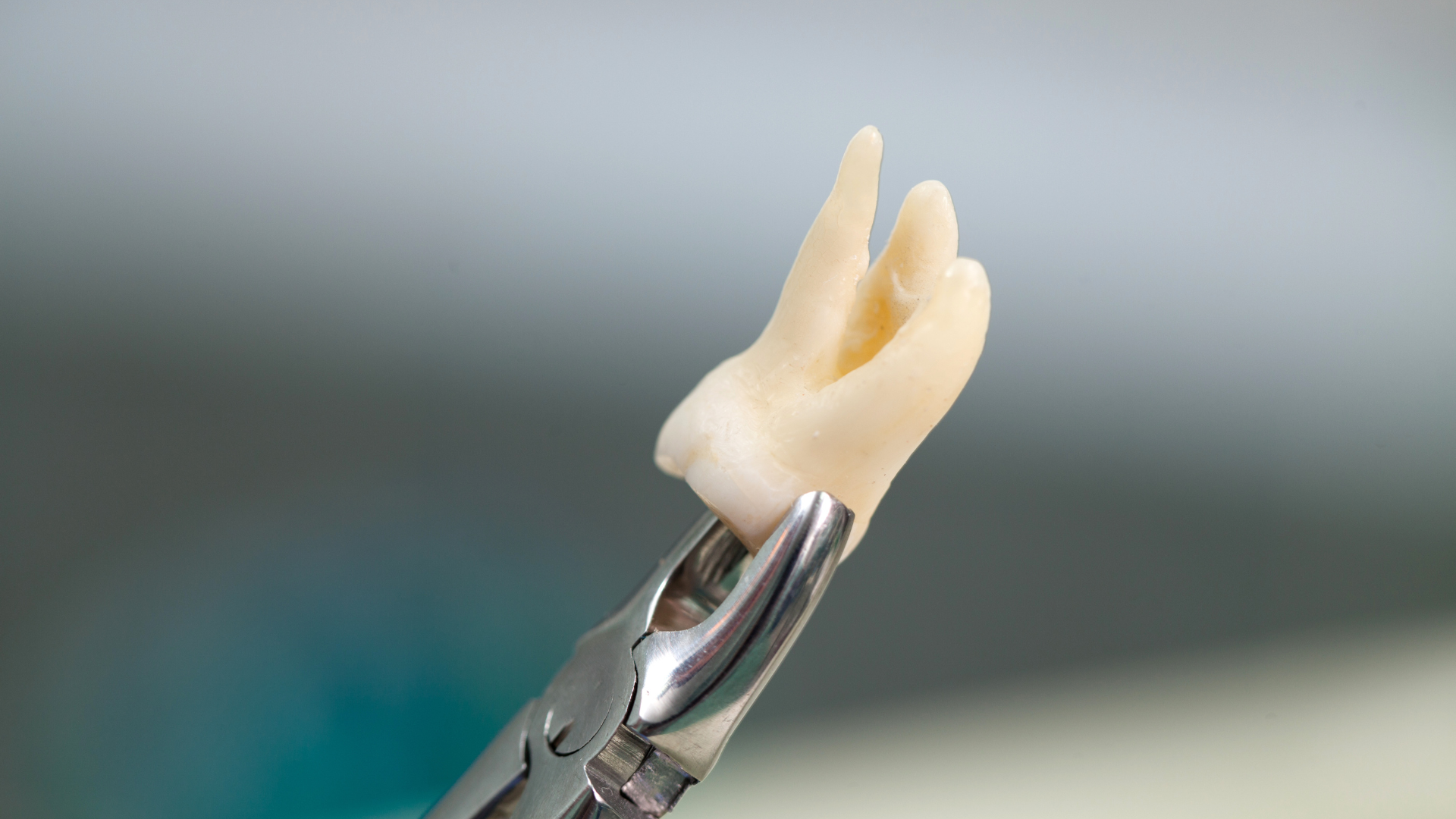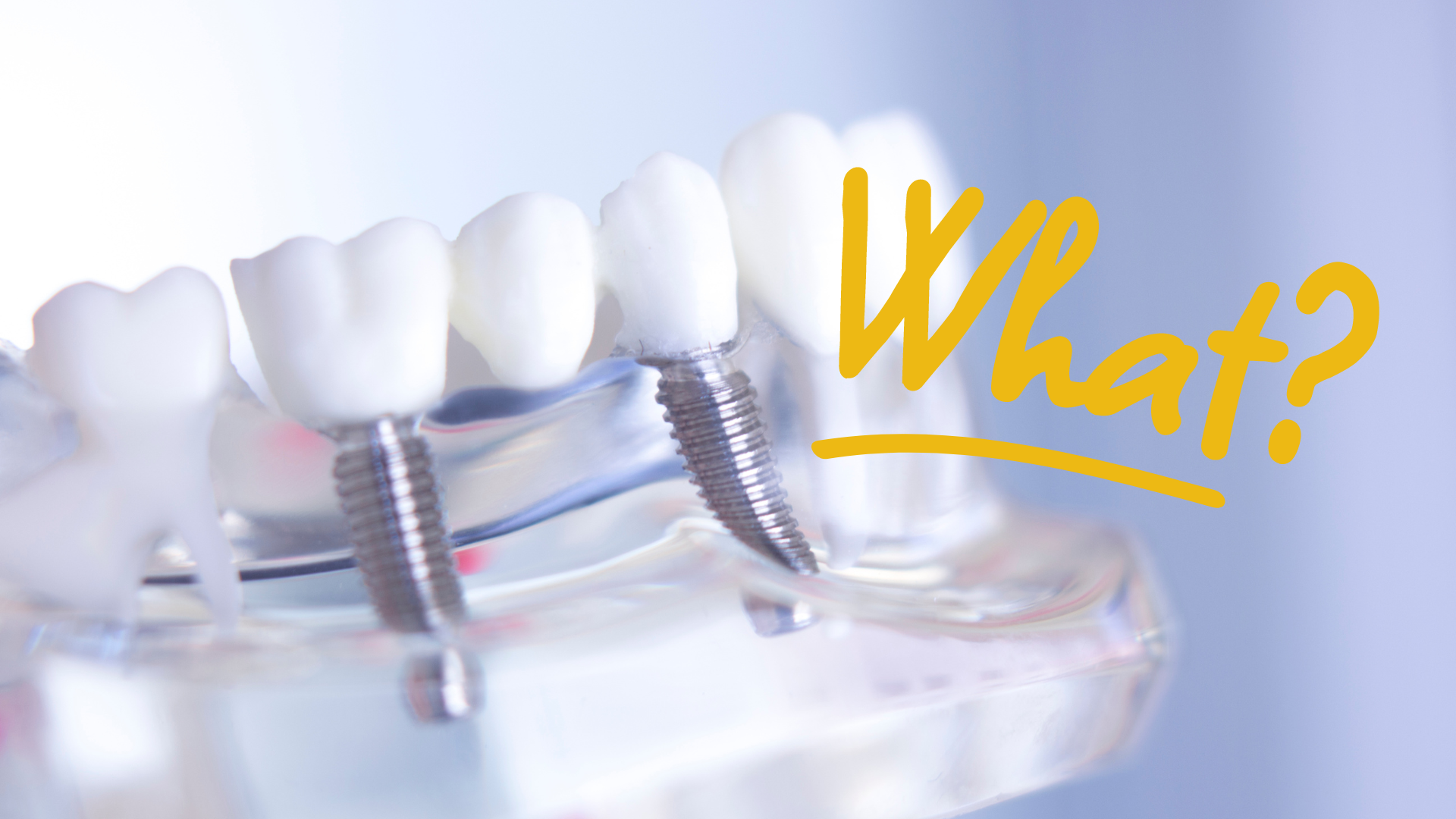How to Relieve Pain from Dental Implant

Understanding Dental Implant Pain
Identifying Normal Post-Surgical Discomfort
After undergoing a dental implant procedure, it's common to experience some level of discomfort. Bernardo Hills Dentistry emphasizes that this is a normal part of the healing process. The discomfort typically peaks within the first few days and gradually subsides. Here's what you can generally expect:
- Mild to moderate pain at the implant site
- Swelling and bruising of the gums and face
- Minor bleeding
- Difficulty chewing
It's important to follow post-operative care instructions to manage discomfort and aid in recovery.
If the pain persists beyond the expected timeframe or intensifies, it may indicate an issue that requires attention. Keeping a pain diary can be helpful in monitoring your recovery and discussing any concerns with your dentist in Rancho Bernardo.
Differentiating Between Acute and Chronic Pain
After undergoing a dental implant procedure, it's crucial to understand the type of pain you're experiencing. Acute pain is typically short-lived, sharp, and often a normal part of the healing process. It usually subsides within a few days to a week. On the other hand, chronic pain persists beyond the expected period of healing, which can be several weeks.
- Acute Pain: Lasts for a few days to a week
- Chronic Pain: Continues for several weeks or longer
At Bernardo Hills Dentistry, we emphasize the importance of monitoring your pain levels. If discomfort persists or worsens, it may indicate an underlying issue that requires attention.
Chronic pain should not be ignored as it could signal complications with the dental implant. If pain persists, it's advisable to consult with your dentist at Bernardo Hills Dentistry to ensure proper healing and care.
Recognizing Signs of Infection or Complications
After a dental implant procedure, it's crucial to monitor the healing process for any signs of infection or complications. Persistent or worsening pain beyond the expected recovery period may indicate an issue that requires attention. At Bernardo Hills Dentistry, we emphasize the importance of recognizing symptoms that could suggest an infection or other complications.
- Swelling that increases after the first few days
- Redness or warmth around the implant site
- Pus or unusual discharge
- Fever or a general feeling of unwellness
It's essential to maintain vigilance in the days and weeks following your dental implant surgery. Any of these signs should prompt a visit to your dentist in Rancho Bernardo to ensure that your recovery is on track and to prevent any potential long-term issues.
If you experience any of these symptoms, do not hesitate to contact Bernardo Hills Dentistry. Early intervention is key to resolving complications effectively and can help maintain the integrity of your dental implant.
Immediate Pain Relief Strategies
Cold Compresses and Ice Therapy
Applying cold compresses or ice packs to the cheek near the implant site can be an effective way to reduce swelling and alleviate pain after dental implant surgery. Bernardo Hills Dentistry recommends using ice therapy during the first 48 hours post-surgery, as it is crucial for managing inflammation.
- Apply the cold compress for 15 minutes on and then 15 minutes off.
- Repeat this cycle as needed during your waking hours.
- Ensure the ice pack is wrapped in a cloth to prevent skin damage.
Remember, while cold therapy is beneficial for immediate pain relief, it should not replace professional medical advice or prescribed treatment plans. If pain persists or worsens, it's important to consult with your dentist in Rancho Bernardo.
Consistent use of cold therapy can significantly aid in your recovery process, but it's just one part of a comprehensive post-operative care routine. For personalized advice and care, the team at Bernardo Hills Dentistry is always ready to assist you.
Over-the-Counter Pain Medications
After undergoing a dental implant procedure, managing pain is crucial for a smooth recovery. Over-the-counter (OTC) pain medications are often recommended by professionals like those at Bernardo Hills Dentistry for immediate relief. These medications can help reduce inflammation and alleviate discomfort during the initial healing phase.
- Acetaminophen (Tylenol)
- Ibuprofen (Advil, Motrin)
- Naproxen (Aleve)
It's important to follow the dosage instructions on the packaging or those provided by your dentist to avoid any potential side effects. If pain persists or worsens, it's essential to contact your dentist for further guidance.
Remember, while OTC medications can provide temporary relief, they are not a substitute for proper dental care and should be used as part of a comprehensive pain management plan.
Proper Rest and Sleep Posture
Ensuring a proper rest and sleep posture is crucial for alleviating pain after a dental implant procedure. Sleeping with your head elevated can help reduce swelling and discomfort. It's recommended to use extra pillows or a foam wedge to maintain your head at a higher level than your heart.
- Avoid sleeping on the side of your new implant to prevent unnecessary pressure.
- Try to maintain a stable position throughout the night to minimize irritation.
Maintaining a good sleep posture not only aids in pain relief but also promotes faster healing. Bernardo Hills Dentistry advises patients to prioritize comfortable sleeping arrangements to support recovery.
If you're unsure about the best sleeping position, consider consulting with your dentist at Bernardo Hills Dentistry for personalized advice. They can provide guidance tailored to your specific situation, ensuring your dental implant heals properly and pain is managed effectively.
Long-Term Pain Management
Prescription Medications and Dosage
For long-term pain management after dental implant surgery, prescription medications may be necessary for some patients. Bernardo Hills Dentistry emphasizes the importance of adhering to the prescribed dosage to avoid complications and ensure effective pain relief.
- Anti-inflammatory drugs: To reduce swelling and discomfort.
- Analgesics: For managing moderate to severe pain.
- Antibiotics: If an infection is present, to prevent its spread.
It's crucial to follow your dentist's instructions on medication use, as overuse can lead to adverse effects, while underuse may not provide sufficient pain relief.
Always discuss any concerns about your medication regimen with your dentist at Bernardo Hills Dentistry. They can adjust your prescription based on your pain levels and healing progress, ensuring a comfortable recovery.
Physical Therapy and Exercises
After a dental implant procedure, engaging in specific physical therapy and exercises can be crucial for managing pain and promoting healing. Bernardo Hills Dentistry recommends gentle jaw exercises to improve mobility and reduce stiffness. These exercises should be performed within the comfort range and should not exacerbate the pain.
- Open and close your mouth slowly, without forcing the jaw.
- Move the jaw side-to-side and then forward and backward.
- Perform these movements for a few minutes several times a day.
Consistency with these exercises is key to reducing long-term discomfort and ensuring a smooth recovery. It's important to follow the guidance provided by your dentist in Rancho Bernardo to avoid any complications.
If pain persists or increases, it may indicate an issue that requires further attention. In such cases, it's advisable to contact Bernardo Hills Dentistry for a professional evaluation and to discuss the next steps in your pain management plan.
Alternative Remedies and Supplements
In addition to conventional pain management techniques, exploring alternative remedies and supplements can be beneficial for long-term comfort following a dental implant procedure. Bernardo Hills Dentistry suggests that certain natural supplements may aid in reducing inflammation and promoting healing. However, it's crucial to consult with your dentist before starting any new regimen to ensure compatibility with your overall treatment plan.
- Omega-3 Fatty Acids: Known for their anti-inflammatory properties.
- Vitamin C: Essential for collagen formation and gum health.
- Vitamin D: Supports bone health and implant integration.
- Curcumin: The active component in turmeric, which may reduce pain and swelling.
While these supplements can support oral health, they should complement, not replace, the guidance provided by your dental care professionals. Always discuss with your dentist at Bernardo Hills Dentistry the best approach for your specific needs.
Remember, each individual's response to supplements can vary, and what works for one patient may not be suitable for another. Monitoring your body's reaction to these remedies is key to finding the right balance for your dental implant care.
Oral Hygiene and Care for Dental Implants
Routine Cleaning and Maintenance
Maintaining your dental implant is crucial for both comfort and longevity. Bernardo Hills Dentistry emphasizes the importance of a consistent oral hygiene routine to prevent discomfort and ensure the implant remains in good condition. Following a dental implant procedure, patients should adhere to a cleaning regimen that includes specific steps tailored to dental implants.
- Brush twice daily with a soft-bristle toothbrush.
- Use a non-abrasive toothpaste recommended for implants.
- Floss daily with unwaxed tape or implant-specific floss.
- Rinse with a mouthwash that's free of alcohol and harsh chemicals.
It's essential to avoid using products that could scratch or damage the implant surface, as this can lead to pain and complications.
Regular maintenance not only relieves potential pain but also prevents infection. Bernardo Hills Dentistry advises patients to be gentle around the implant site, especially in the days immediately following surgery. As the site heals, continue to follow these guidelines to promote optimal healing and comfort.
Avoiding Harmful Habits
Maintaining the integrity of your dental implant is crucial for long-term success and comfort. Avoiding harmful habits is essential to prevent unnecessary pain or damage to your dental implant. At Bernardo Hills Dentistry, we emphasize the importance of steering clear of behaviors that can jeopardize your oral health.
- Smoking: Not only does it delay healing, but it also increases the risk of implant failure.
- Chewing Hard Objects: Ice, hard candies, or pens can crack or chip the implant.
- Using Teeth as Tools: Opening packages or bottles can exert undue pressure on the implant.
It's important to remember that dental implants are an investment in your oral health. Protecting them from harmful habits will ensure their longevity and functionality.
By following the guidance provided by your dentist in Rancho Bernardo, you can enjoy a pain-free experience with your dental implant. If you have any concerns about your habits and how they may affect your dental implant, don't hesitate to reach out to Bernardo Hills Dentistry for personalized advice.
Regular Dental Check-Ups and Cleanings
Maintaining the longevity and comfort of your dental implant is heavily reliant on regular dental check-ups and cleanings. Bernardo Hills Dentistry emphasizes the importance of these routine visits to ensure that your implant remains in optimal condition and to prevent any potential issues that could lead to discomfort or pain.
- Biannual check-ups to monitor implant health
- Professional cleanings to remove plaque and tartar
- Assessment of oral hygiene practices
Regular visits to your dentist in Rancho Bernardo are not just about keeping your implant clean, but also about catching any problems early on when they are most treatable.
Adhering to a schedule of regular check-ups and cleanings is a proactive step in managing the health of your dental implant. Bernardo Hills Dentistry can provide personalized advice on the care and maintenance of your implant to ensure that it continues to function painlessly and effectively.
When to Seek Professional Help
Monitoring Pain Progression
After a dental implant procedure, it's crucial to monitor the progression of your pain. Bernardo Hills Dentistry emphasizes the importance of noting changes in pain intensity, frequency, and location. This information can be invaluable for your dentist in Rancho Bernardo to assess the healing process and identify any potential issues early on.
- Day 1-3: Pain peaks, normal post-surgical discomfort
- Day 4-7: Gradual decrease in pain intensity
- Week 2 onwards: Significant reduction in pain; any persistent or worsening pain should be reported
It's essential to keep a pain diary, noting down your pain levels at different times of the day. This simple practice can help your dental care provider at Bernardo Hills Dentistry tailor a pain management plan that's right for you.
If the pain follows an unusual pattern or intensifies after the initial recovery period, it may indicate a complication. In such cases, timely intervention by your dentist in Rancho Bernardo can prevent further issues and ensure the longevity of your dental implant.
Consulting Your Dentist or Oral Surgeon
When experiencing persistent or severe pain after a dental implant, it's crucial to consult with a professional. Bernardo Hills Dentistry offers expert advice and treatment options for those seeking a dentist in Rancho Bernardo. Whether you're in need of a routine check-up or specialized care from a cosmetic dentist in Rancho Bernardo, the team is equipped to handle your concerns.
- Schedule an appointment to discuss pain symptoms.
- Receive a personalized assessment of your dental implant.
- Explore potential treatments or adjustment.
It's important to remember that timely intervention can prevent further complications and ensure the longevity of your dental implant. Do not hesitate to reach out to your dental care provider if you notice any unusual or prolonged discomfort.
If you're unsure about the nature of your pain, Bernardo Hills Dentistry can help differentiate between normal healing processes and signs that may indicate a need for further intervention. Their expertise in dental implant care is an invaluable resource for maintaining oral health.
Understanding the Role of Surgical Intervention
In some cases, pain from a dental implant may indicate the need for further surgical intervention. Bernardo Hills Dentistry emphasizes that timely action can prevent more serious complications. Surgical procedures, when necessary, are aimed at correcting underlying issues that may be causing discomfort or pain.
- Revision surgery to adjust the implant position
- Grafting proced
It's crucial to maintain open communication with your dentist in Rancho Bernardo to determine if surgery is the right course of action for persistent pain.
Surgical intervention is typically considered after conservative measures have failed to provide relief. The team at Bernardo Hills Dentistry will guide you through the decision-making process, ensuring that all options are considered and the best possible outcome for your oral health is achieved.
Frequently Asked Questions
-
Is it normal to feel pain after a dental implant procedure?
Yes, it is normal to experience some pain and discomfort after a dental implant surgery as your mouth heals. This usually subsides within a few days to a week.
-
How can I manage pain immediately after my dental implant surgery? titanium considered the gold standard for implant materials?
Immediate pain relief can be achieved through cold compresses, over-the-counter pain medications like ibuprofen, and ensuring proper rest and sleep posture to reduce swelling.
-
What are some long-term pain management strategies for dental implants?
Long-term pain management may include prescription medications as advised by your dentist, physical therapy, exercises, and possibly alternative remedies or supplements.
he implant.
-
How important is oral hygiene in caring for my dental implant?
Oral hygiene is crucial for the longevity and health of your dental implant. Routine cleaning, avoiding harmful habits like smoking, and regular dental check-ups are essential.
-
When should I seek professional help for pain after a dental implant?
If the pain is severe, persistent, or worsening over time, you should consult your dentist or oral surgeon. Signs of infection or complications also warrant professional attention.
-
Can dental implants cause chronic pain?
While uncommon, dental implants can cause chronic pain if there are complications such as infection, improper placement, or nerve damage. It's important to follow up with your dentist if chronic pain occurs.
Bernardo Hills Dentistry
11665 Avena Pl # 105, San Diego, CA 92128, United States
(858) 877-9307
Hours & Address
Monday: 9:00 am - 6:00 pm
Tuesday: 9:00 am - 6:00 pm
Wednesday: 8:00 am - 5:00 pm
Thursday: 7:00 am - 5:00 pm
Friday: 7:00 am - 3:00 pm
Saturday-Sunday: Closed
Navigation Links
Hours & Address
Monday: 9:00 am - 6:00 pm
Tuesday: 9:00 am - 6:00 pm
Wednesday: 8:00 am - 5:00 pm
Thursday: 7:00 am - 5:00 pm
Friday: 7:00 am - 3:00 pm
Saturday-Sunday: Closed
Navigation Links
Hours & Address
Monday: 9:00 am - 6:00 pm
Tuesday: 9:00 am - 6:00 pm
Wednesday: 8:00 am - 5:00 pm
Thursday: 7:00 am - 5:00 pm
Friday: 7:00 am - 3:00 pm
Saturday-Sunday: Closed
Navigation Links
Bernardo Hills Dentistry | All Rights Reserved



